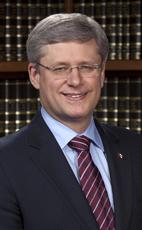moved:
That this House deplore the attitude of the Prime Minister of Canada at and following the First Ministers' Conference of October 26, 2004, and that it call on the federal government to immediately implement its pledges of June 5 and 27, 2004, to allow the provinces of Newfoundland and Labrador, and Nova Scotia to keep 100% of their provincial offshore oil and gas revenues.
Mr. Speaker,I will be splitting my time with our deputy leader from Central Nova.
On June 5 of this year the Prime Minister arrived in St. John's, the capital of Newfoundland and Labrador. The context was the following. Obviously it was an election campaign when the Prime Minister was asked to respond to a longstanding Conservative commitment to ensure that the Atlantic provinces would enjoy 100% of their non-renewable resource royalties.
This is a commitment that was made by me in my capacity as leader of the Canadian Alliance when I first arrived here and has its origins in the intentions of the Atlantic accord signed by former Prime Minister Mulroney in the mid-1980s. These are longstanding commitments, our commitment to 100% of non-renewable resource royalties. It was our commitment during the election, before the election, and it remains our commitment today.
For the Prime Minister, this was something that he had opposed for 11 years and for most of his political career. But suddenly in the midst of an election campaign on June 5, he met with Newfoundland and Labrador Premier Danny Williams. He came out of that meeting and said the following:
I believe that Newfoundland and Labrador ought to be the primary beneficiary of the offshore resources, and what I have said to the premier is that I believe the proposal that he has put forth certainly provides the basis of an agreement between the two of us.
Premier Williams specified in a letter dated June 10 that:
The proposal my government made to you and your Minister of Natural Resources provides for 100% of direct provincial revenues generated by the petroleum resources in the Newfoundland and Labrador Offshore Area, to accrue to the government of Newfoundland and Labrador and be sheltered from the clawback provisions of the equalization formula--
The Prime Minister said he agreed with the Premier's proposal and he gave his word as Prime Minister of Canada. Premier Williams was asked at the press conference announcing the deal how he could be sure the Prime Minister would keep his word after the election. He replied that as a man of honour, that the solemn word of the Prime Minister was sufficient. Premier Williams said: “It's by word of mouth, and I'm taking him at his word, and that's good enough for me”.
Unfortunately, the solemn word of this Prime Minister turned out to be not good enough. The Prime Minister ignored letters from Premier Williams on June 10, August 5 and August 24 urging him to confirm his promise. Suddenly, the Prime Minister and his Minister of Natural Resources fell silent.
Finally, on October 24, two days before the first ministers' conference, the Minister of Finance finally replied offering:
--additional annual payments that will ensure the province effectively retains 100 per cent of its offshore revenues--
Then the minister added two big exceptions limiting the offer:
--for an eight-year period covering 2004-05 through 2011-12, subject to the provision that no such additional payments result in the fiscal capacity of the province exceeding that of the province of Ontario in any given year.
The eight year time limit and the Ontario clause effectively gutted the commitment made to the people of Newfoundland and Labrador during the election campaign.
Why should Newfoundland's possibility of achieving levels of prosperity comparable to the rest of Canada be limited to an artificial eight year period? Remember in particular that these are in any case non-renewable resources that will run out. Why is the government so eager to ensure that Newfoundland and Labrador always remain below the economic level of Ontario?
The Ontario clause is unfair and insulting to the people of Newfoundland and Labrador, and its message to that province, to Nova Scotia and to all of Atlantic Canada is absolutely clear. They can only get what they were promised if they agree to remain have not provinces forever. That is absolutely unacceptable.

